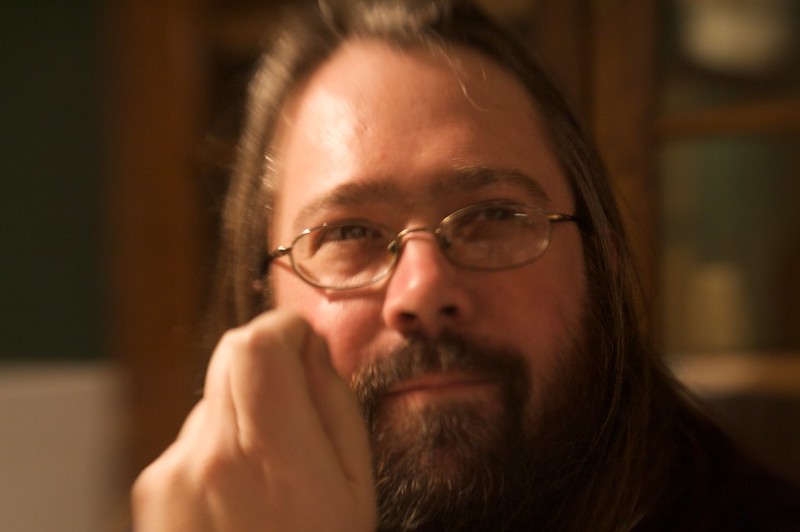code4lib
-
In Memoriam and Appreciation of Rob Casson (1974-2020)
The world lost one of its brightest and most charming lights earlier this week, Rob Casson. Many of us knew Rob through the Code4Lib community and conferences and his work at Miami University Libraries. We miss his generosity, patience, sense of humor, and genuine kindness. Those of us who got the chance to socialize with him also remember his passion for music, and some of us were even lucky to see live shows in the evenings between conference sessions and other social activities.
On Sunday, October 4 at 1:30 PM Pacific/4:30 PM Eastern, those of us who knew him through Code4Lib and the world of libraries are encouraged to gather to share our memories of him and to appreciate his life and work. Please join me and my co-organizers, Mike Giarlo and Declan Fleming on Zoom (registration required).

Robert Casson (robcaSSon), 30 Jan 1974 - 29 Sep 2020. Photo: Declan Fleming.
-
What DPLA and DLF Can Learn from Code4lib
This post has been crossposted to the Digital Library Federation blog.
Code4lib 2015 was held last week from February 9-12, 2015 in Portland, Oregon. The Code4lib conferences have grown in the last ten years, both in terms of size and scope of topics. This growth is particularly impressive when you consider that much of the work of organizing the conference falls upon a circulating group of volunteers, with additional organizational support from organizations like the Digital Library Federation. It has become clear to me that the Code4lib community is interested in ensuring that it can develop and support compelling and useful conferences for everyone who chooses to participate.
-
Go FOAF Yourself
I'm really looking forward to next week's code4lib conference in Providence, despite my utter failure to complete or implement the project on which I am presenting. In particular, I'm really looking forward to the linked data preconference. Like some of my other fellow attendees, I've hammered out a FOAF file for the preconference already so that Ed Summers' combo FOAF crawler and attendee info web app. This is what the sample output looks using my FOAF data. It's good to see we're well on our way to have an easily creatable sample type of RDF data for people to play with. At a bare minimum, you can create your FOAF data using FOAF-A-Matic and then edit it to add the assertions you need to get it to play nice with Ed's application. See you in Providence, but go FOAF yourself first. -
Idle Hands Are The Devil's Plaything
I've had my hands full lately. Two weeks ago I was at the MCN conference (wherein, among other things, I have continued my dominion as Archduke of Archival Description by taking over the MCN Standards SIG chair position from The Bancroft Library's Mary Elings), and next week I'm off to Philadelphia for the PACSCL Something New for Something Old conference. I hammered out the coherent, written version of my paper I gave at EAD@10. I prepared a proposal for next February's code4lib conference in Providence (ahem, vote for mine, if you're so inclined): Building on Galen Charlton's investigations into distributed version control systems for metadata management, I offer a prototype system for managing archival finding aids in EAD (Encoded Archival Description). My prototype relies on distributed version control to help archivists maintain transparency in their work and uses post-commit hooks to initiate indexing and publishing processes. In addition, this prototype can be generalized for any XML-based metadata schema. On top of that, I'm working with a fine group of folks on the RLG Programs project to analyze EAD editing and creation tools, doing hardcore schema mapping at work, and somehow finding enough time to play a little Doukutsu Monogatari to unwind.
